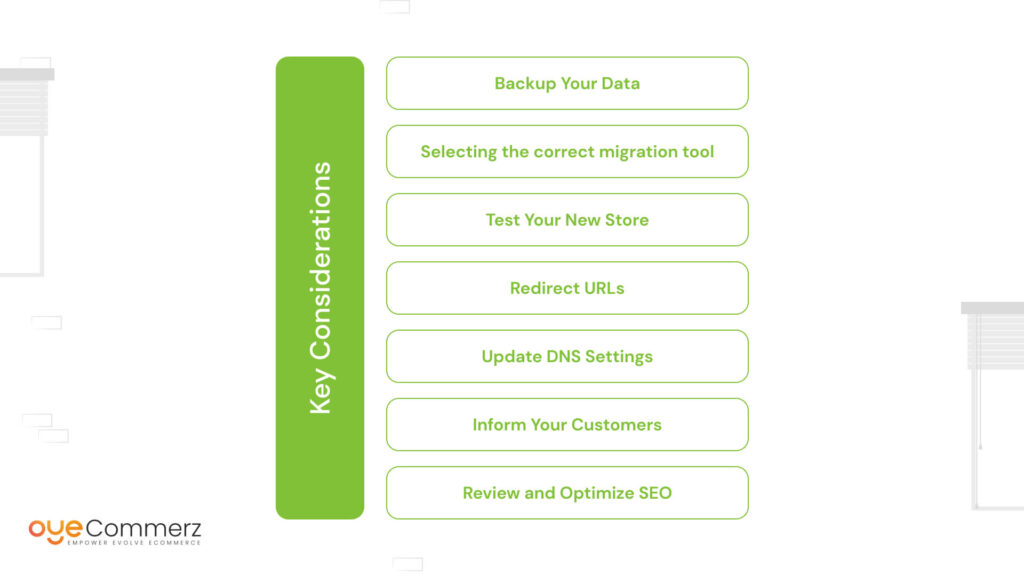In the ever-evolving landscape of eCommerce, picking the optimal solution is vital for your brand’s prosperity. If you’re at the moment using WP and planning a migration to an alternative, you’re not by yourself. Numerous businesses are making this transition to leverage Shopify’s robust features, simplicity, and growth potential. This guide will guide you on the journey of migrating from WordPress to Shopify seamlessly, guaranteeing that you achieve your eCommerce potential.
Why Migrate from WordPress to this platform?
Prior to starting the migration process, it’s crucial to realize why this change can be beneficial for your online store:
User-Friendly Interface: Shopify offers an straightforward system that streamlines store handling, enabling for non-technical users.
Growth Potential: As your company grows, Shopify can support greater traffic and transactions without affecting performance.
All-in-One Solutions: Shopify includes built-in resources for search engine optimization, analytics, payment processing, and additional functionalities, eliminating the need for numerous plugins.
Advanced Safeguards: With Shopify, you benefit from advanced security features that secure critical customer details.
Steps for a Smooth Migration
Migrating your eCommerce site from WP to Shopify requires several phases.
Here’s how to ensure a smooth transition:
Prepare Your Migration Strategy
Kick-off by mapping out your migration blueprint. Decide on which elements of your current site you plan to transfer, such as:
Item details
Customer information
Purchase logs
Articles
Choose the Appropriate Migration Package
Based on your preferences, opt for a migration package that fits your eCommerce goals. Professional services delivers several options:
Entry-Level Plan: Ideal for boutique stores with limited products.
Mid-Tier Plan: Appropriate for medium-sized businesses with intermediate demands.
Advanced Plan: Best for high-volume stores requiring extensive customization.
Backup Your Information
Before starting the migration, guarantee that you have a full archive Shopify design customization of your WP site. This action is crucial in the event anything goes off track during the transfer.
Retrieve Your Data from WP
Utilize plugins or alternative solutions to export critical information from your WP site:
Products
Clients
Orders
Blog posts
Migrate Data into Shopify
Once you have your content extracted, use Shopify’s built-in features or specialized apps to transfer your information into your updated store. Verify that all information is correctly formatted and arranged.
Adapt Your Shopify Site
After uploading data, customize your Shopify store’s theme to match with your brand identity. Think about engaging a specialist if you want advanced customization.
Configure TransactionOptions and Delivery Settings
Arrange payment gateways and shipping settings in Shopify to create a user-friendly checkout experience for customers.
Apply Search Engine Optimization Guidelines
To keep your search engine rankings during the migration:
Implement 301 URL mappings from previous URLs to updated ones.
Refresh descriptions.
Enhance media and copy for better ranking.
Evaluate Your Migrated Platform
Ahead of publishing, extensively test your new store. Check for any broken links, transaction errors, or untransferred content.
Publish Your Site
When everything is in order, it’s advantages of Shopify the moment to launch! Announce the transition to your customers and encourage them to discover the enhanced offerings of your Shopify store.
Post-Migration Guidance
Post releasing your Shopify store, regular help is important. Think about engaging professionals who can assist with:
Technical support
Customer engagement
Performance optimization
Conclusion
Migrating from WordPress to this platform can be a game-changing move for your eCommerce. By following this guide and working with experts like those offered by dedicated providers, you can ensure a effortless transition that improves your online presence. Adapt to the change and discover the potential of Shopify today!
